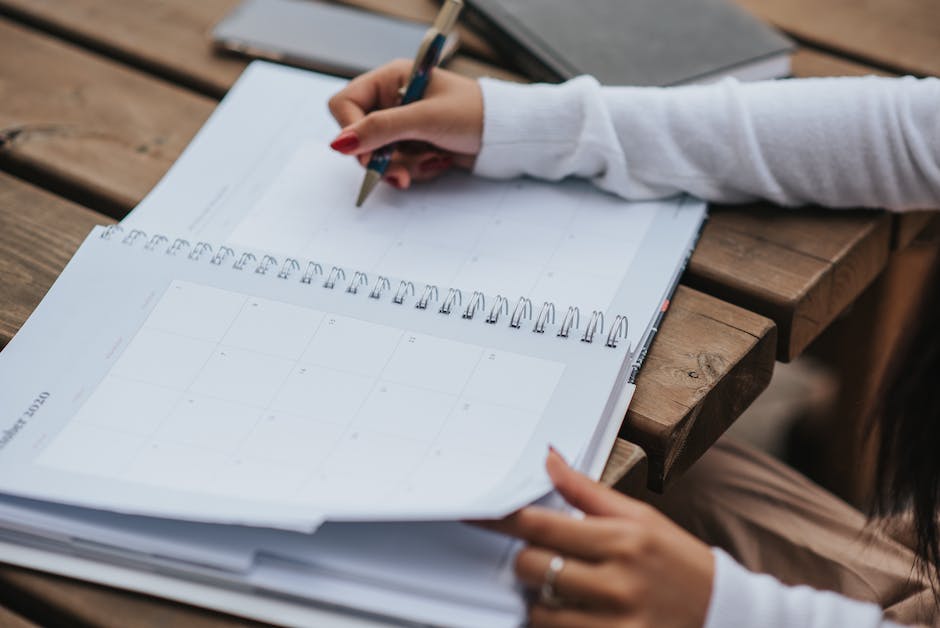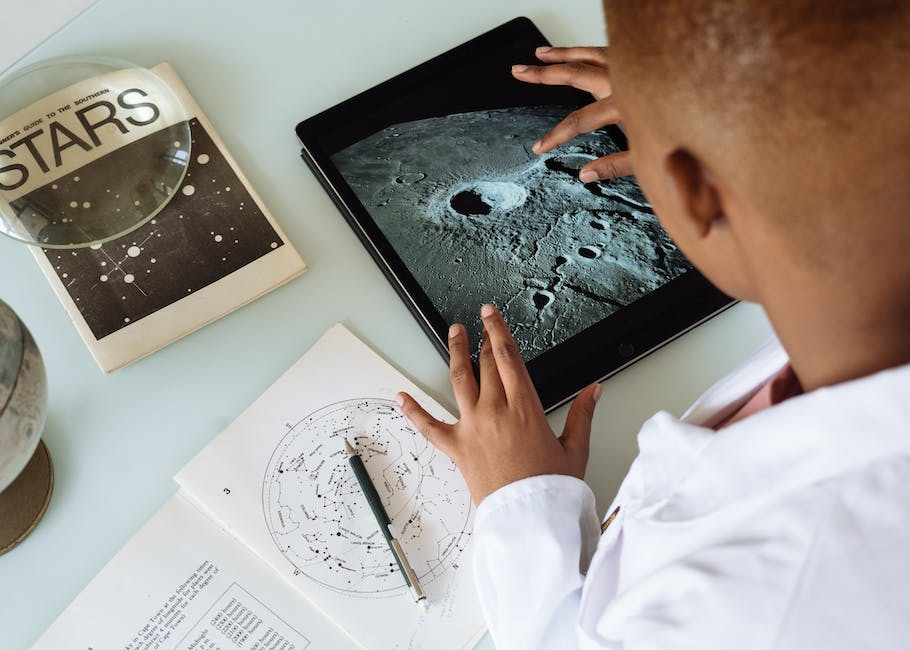The journey towards better learning and personal self-development starts with the cultivation of positive study habits. Engaging in effective study strategies serves as foundational elements that greatly impact an individual’s academic achievement, mental health, and overall well-being. The structure provided by a well-planned and consistent study schedule, combined with the application of diverse and personalized study techniques, significantly enhances the comprehension and retention of knowledge. Furthermore, curating a conducive and organized study environment leverages the ability to concentrate and assimilate information effectively. This exploration into the importance of study habits and how to foster them will provide a clearer understanding and practical strategies towards improved learning.
Understanding the importance of positive study habits
Understanding the Value of Positive Study Habits
Positive study habits play an influential role in promoting effective learning and personal development. It’s important to comprehend why this is vital for the realization of academic goals and for maintaining a balanced mental health.
Connection Between Positive Study Habits and Academic Success
Building strong study habits is directly correlated with academic achievement. Regularly engaging with the material improves comprehension, enhances memory, and solidifies the learning process. Students who employ effective study strategies are more likely to excel in their coursework and demonstrate a deeper understanding of the subject matter.
Well-established study habits ensure that learning is consistent and progressive. This practice heightens academic performance because it allows students to continuously reinforce their knowledge and understanding. Over time, this approach to studying yields greater achievement in academic evaluations, such as tests and exams.
Impact on Mental Health
Not only do positive study habits improve academic success, but they also contribute significantly to better mental health. Structured study routines that include time-management strategies help to reduce stress and anxiety, especially during high-stakes testing periods.
Students who incorporate break periods during study sessions are better able to manage their mental loads, preventing mental fatigue and burnout. Additionally, maintaining a positive perspective towards studies can improve self-confidence and foster a sense of accomplishment, both of which are beneficial for mental well-being.
Overall Well-being
Furthermore, good study habits contribute towards general well-being. Achieving the right balance between study time, rest, leisure activities, and social interactions is critical in maintaining overall health and happiness. Regulated study periods allow for sufficient time for relaxation, physical activities, and socializing, all of which are crucial in leading a well-balanced life.
Maintaining steady sleep patterns is also part of effective study habits, as it enables the brain to process and retain information better. All of these factors intertwined are contributing components to overall well-being.
In conclusion
Understanding the importance of positive study habits extends beyond academic success. These study strategies are integral not only for learning but also for psychological health and overall well-being. Therefore, the development and implementation of effective study habits should be a priority for any student.

Establishing a consistent study schedule
Establishing a Consistent Study Schedule
The first step to developing positive study habits is to create a consistent study schedule. Map out your day, allocate specific time slots for studying and stick to these timings consistently. This establishes a pattern and trains your mind to be prepared for focused study during those periods. Remember not to cram your schedule with prolonged study hours, keep it balanced to avoid burnout.
Benefits of Regular Study Times
Having regular study times helps in maintaining continuity and improving comprehension. It keeps you engaged with your studies and reduces the chances of forgetting what you’ve studied. Moreover, it allows you to distribute your study load over a period to avoid last-minute stress.
Importance of Breaks
Taking regular breaks helps in improving focus and productivity, thus making your study time more effective. After a period of focused studying, it’s crucial to allow your mind to rest and digest what you have learned. You can employ techniques like the Pomodoro Technique – study for 25 minutes, then take a 5-minute break.
Using the Pomodoro Technique
The Pomodoro Technique is a popular time-management method to improve productivity. For this technique, set a timer for 25 minutes of focused studying, then take a 5-minute break. After completing four “pomodoros,” take a long break of 15 to 30 minutes. Repeat this cycle as needed throughout your study period.
Exploring Study Scheduling Tools
In this era of digital life, numerous tools and apps can help in managing your time effectively. Google Calendar, Any.do, My Study Life are few of them. These apps let you schedule your study time, set reminders for important dates, and allow sharing with others if needed.
Adapting Your Study Schedule
Your study schedule isn’t set in stone. It needs to adapt according to your academic needs, personal commitments, and changing study load. Review your timetable every week or month and make necessary adjustments.
Using Various Study Techniques
Combine your schedule with various study techniques such as flashcards, mnemonic devices, or mind-maps, to aid in memory retention and understanding. Remember, what works for one might not work for another. Explore different techniques and identify what works best for you.
Remember
A consistent study schedule is not the only component in achieving academic success. It needs to be combined with determination, perseverance, and a positive attitude towards learning.

Exploring various studying techniques
Understanding Various Studying Techniques
There are several well-known studying techniques that you can use to improve your study habits. To start, active recall involves forcing your brain to recall information. This technique is highly effective and includes the use of flashcards or simple question and answer methods. For instance, when studying a topic, close the book and try to recall key points. This reinforces your memory and retention of the information.
Spaced repetition is another technique in which you review material at increasing intervals over time. By revisiting the information multiple times, it enhances long-term memory. There are various apps, like Anki, that can assist in implementing spaced repetition.
The Feynman technique requires you to explain a concept or topic in simple language as if teaching it to someone else. In doing so, you get a clear understanding of the topic and can easily identify the areas you do not fully comprehend.
Note-taking methods are crucial in studying. The Cornell Notes method involves dividing your note page into 3 sections: a narrow left section for keywords/questions, a wide right section for notes, and a smaller section at the bottom for summaries. This method encourages active learning during lectures and improves recall during self-review.
Implementing Different Techniques
Now that you understand these techniques, start implementing them one by one. Do not overwhelm yourself with trying all at once. Focus on one technique at a time, and take at least a week to practice and reflect upon its effectiveness for your learning style.
For example, you might start with the active recall technique first. Use this technique during your study sessions, and after a week, assess how well you can remember the material. If it works for you, continue applying it along with the next technique – say, spaced repetition.
Determining Effective Techniques for Your Learning Style
Everyone’s learning style is different. What works for others might not work for you and vice versa. Therefore, it is essential to understand your learning style; are you an auditory learner, visual learner, or kinesthetic learner?
By understanding your learning style and testing out different study techniques, you will be able to identify what works best for you. Remember, developing good study habits takes time and different methods work effectively when used consistently over a period. Keep trying out different techniques until you find your suitable methods. Remember, the goal is to understand the material, not just to memorize it.
Review your progress regularly and make adjustments as necessary, always focusing on the techniques that help you better understand and retain the information. Over time, these practices become habits, significantly improving your learning efficiency and effectiveness. Keep an open mind, be patient, and give each technique a fair chance before deciding its effectiveness for your study routine.

Developing a conducive study environment
Choosing the Right Study Space
Choose a space that is comfortable, well-lit and free from distractions to create an optimal study environment. This could be a quiet room in your home, a library, or even a quiet coffee shop. Ensure this space is dedicated to studying and not associated with activities which may distract you, like eating or watching TV.
Organizing Your Study Space
A clutter-free and organized study environment is crucial for concentration and productivity. Keep your workspace clean and organized by having a specific place for your textbooks, notebooks, stationery, and computer. Frequently tidying your study space will also allow you to locate materials you need with ease.
Maintaining Optimum Lighting
A well-lit study environment is essential to reduce eye strain and maintain focus. Make use of natural light during the day as it has been shown to improve mood and concentration. During the evening or in areas with limited natural light, use a desk lamp with a daylight bulb to emulate natural light.
Managing Noise Level
A quiet study environment is key to stay focused. If you can’t find a quiet place to study, consider using earplugs or headphones. Some people find listening to classical music or nature sounds helpful in blocking out background noise and increasing concentration.
Adjusting Room Temperature
Room temperature can have a significant impact on your ability to study effectively. If a room is too hot, it can make you feel lethargic and unfocused. On the other hand, a cold room can be discomforting and distract you from your studies. Try to maintain a room temperature around 70-75 degrees Fahrenheit for an optimal studying condition.
Using Ergonomic Furniture
Ensuring that your chair and desk are at the appropriate height can keep you comfortable and focused. An ergonomic chair that supports your back can prevent discomfort and promote better focus. Your computer monitor should be positioned at eye level to avoid neck strain.
Staying Highly Motivated
Surround yourself with items that inspire and motivate you. This can be educational posters, motivational quotes, or images that relate to your career goals or subjects of study. This will subconsciously boost your motivation to study and make your study space a more enjoyable place to be.
Establishing a Consistent Study Routine
Having a regular study schedule can help to create a habit and enable you to manage your time effectively. Allocate specific times each day for studying and stick to this routine. This will help you to discipline yourself and also ensure you take regular breaks to avoid overworking yourself.
By following these steps, you can create a study environment that maximizes productivity and encourages positive study habits. The more personalized and inviting your study space is, the more likely you are to utilize it effectively.

Indisputably, crafting a personalized study schedule, applying effective learning techniques, and creating an optimal studying environment are instrumental in enhancing academic success and mental health. Whether it’s the Pomodoro Technique, active recall, or the Cornell Notes system, these varied methods offer opportunities to discover what works best for individual learning styles. Furthermore, the influence of environmental factors on concentration and information processing signifies the importance of a peaceful and inspiring study environment. Continual refinement of these positive study habits promotes personal growth, thus making learning a more rewarding and enriching process.


Sweet blog! I found it while browsing on Yahoo News.
Do you have any tips on how to get listed in Yahoo News? I’ve been trying for
a while but I never seem to get there! Appreciate it